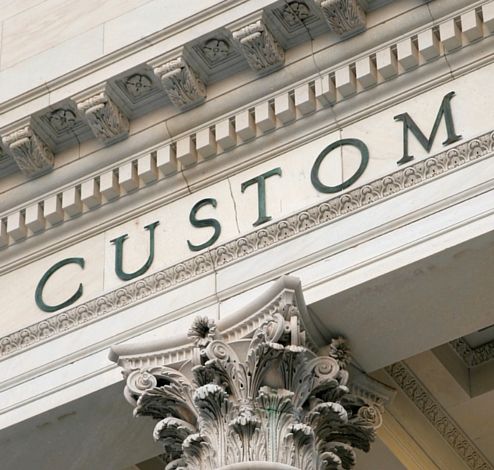
Customs bonds are a type of insurance. Essentially they’re financial guarantees involving three different parties which include:
- Customs & Border Protection (CBP)
- Principal, which is the required person to file for the bond
- Insurance/Surety Company issuing the Customs bond
Do You Need A Customs Bond?
How do I know when I need a Customs bond? Does it come with a tuxedo?
Different bond. You need a Customs bond when importing goods into the United States for marketable use valued over $2,500 or if your goods are subject to additional federal agency requirements. Examples = food and firearms. As an importer you are required to post a Customs bond to guarantee that all taxes, fees, and duties payable to the federal government will be paid.
Types of Customs Bonds
Customs Import Bond-Activity Code 1-Continuous Import Bond
A Customs Import bond is a financial agreement between the Customs & Border Protection (CBP), the importer of record, and the Insurance/Surety Company issuing the Customs bond. Most Customs bonds filed are Import Bonds-Activity Code 1. The Customs & Border Protection (CBP) mandates that all importers file a Customs Import Bond that will clear their entries into the United States. This also applies if the goods are duty-free. The Customs Import Bond assures that the Customs & Border Protection (CBP) will secure all taxes, penalties, fines and import duties from either the importer or the insurance/surety company that issued the bond.
Drawback Bond-Activity Code 1a-Continuous Drawback Bond
The Drawback Bond gives the importer the ability to secure a reimbursement of 99% of the charges paid on imported commodities when providing verification these commodities were exported. To be qualified for a reimbursement an importer will need to supply evidence that the goods were exported out of the United States or were destroyed after arriving in the country.
Custodian Bond-Activity Code 2-Continuous Custodian Bond
The Custodian Bond comprises of the activities of carriers, cartmen, bonded goods warehouses and container stations. These business entities are accountable for the commodities that have not been formally “entered” into the United States markets and still have duties due. These goods are specified as being “in-bond.”
International Carrier-Activity Code 3-continuous Carrier Bond
The International Carriers Bond makes certain agents accurately document all passengers and goods they transport. This includes supplementary pay for Customs officers and compliance with all classifications to the authorization of the carrier’s means of transportation.
Foreign Trade Zone-Activity Code 4-Continuous FTZ Bond
The Foreign Trade Zone (FTZ) is deemed non-United States terrain for Customs’ purposes. Overseas goods placed into the Foreign Trade Zone may be exported or repacked, manipulated or manufactured without paying duties.
The Foreign Trade Zone Bond is mandatory and needs to be filed by all FTZ operators as a guarantee to the United States government. This guarantee is from the insurance company ensuring that the FTZ will abide by all rules that govern the Foreign Trade Zones. Penalties may arise because of failure to follow regulations, payable to the CBP. Insurance pays up if the rules aren’t followed. Then the bond will allow the insurance company to pursue any money or legal fees they incur on behalf of the FTZ.
That’s a lot of bonds.
We know, and we’re here to help. Customs brokers are representatives for sureties and also sell bonds. This can be done through the Customs Brokers Automated Broker Interface system so that it electronically feeds the required data entry information to the surety agent. In order for a Customs broker to issue a bond they must have a power of attorney to file on your charge. We have a Power of Attorney form on our website here.
To determine the appropriate type of bond required for your specific importing needs, contact AFC international LLC at 1.800.274.2329.


Leave a Reply
You must be logged in to post a comment.